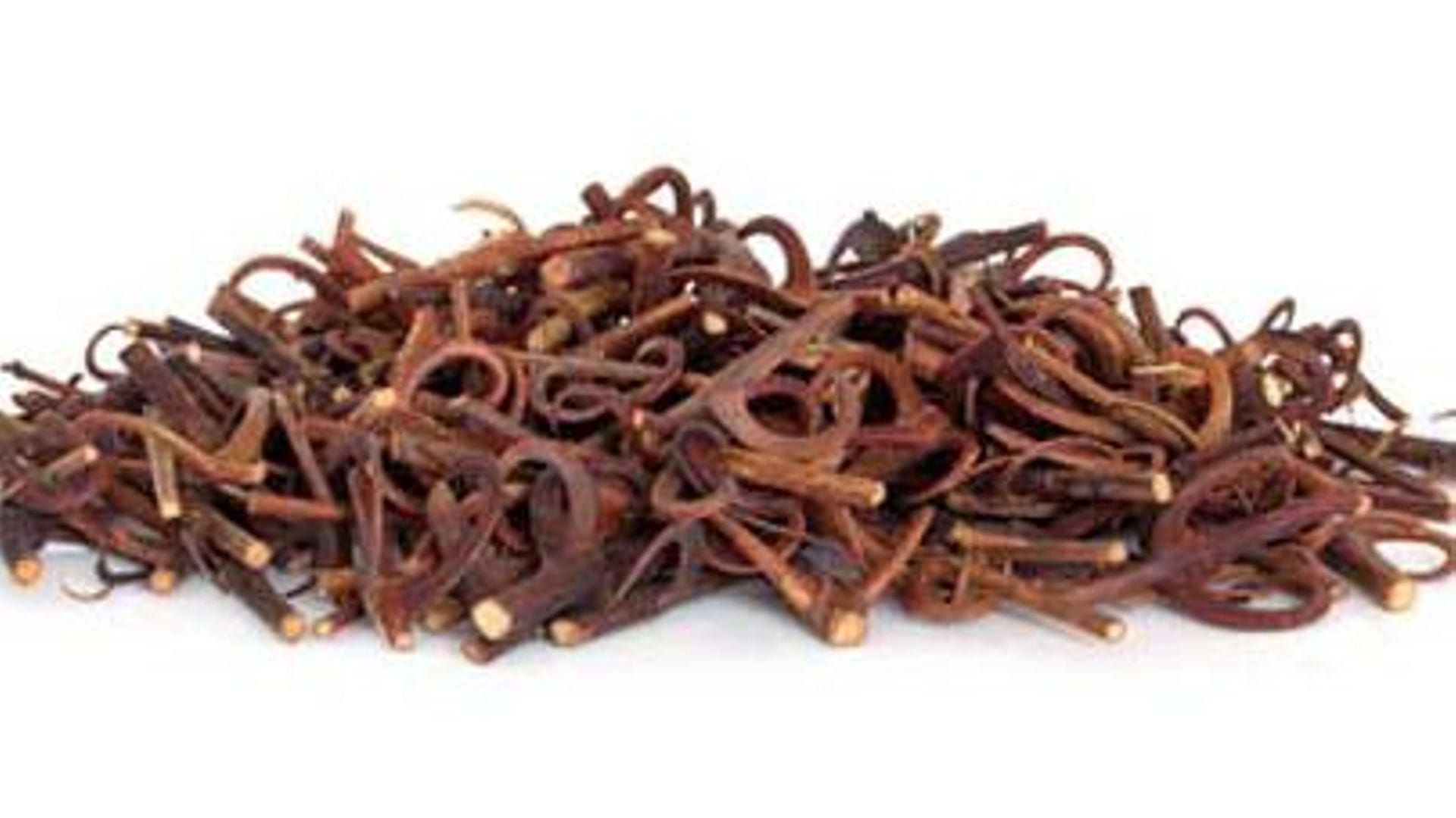Introduction
Cat's claw, also known by its botanical name "Uncaria tomentosa", is a plant native to the Amazon rainforest. It has been used for centuries by indigenous peoples for its medicinal properties. Today, it is often used as a dietary supplement for its many health benefits. In this article, we take a closer look at cat's claw, exploring its origin, its use as a food supplement and its health benefits.
Origin and composition of cat's claw
Cat's claw is a vine that grows mainly in the Amazon, as well as in other parts of South and Central America. It is generally harvested using sustainable techniques and is then dried and processed into a powder or liquid extract.
Cat's claw has a complex chemical composition, including several active compounds such as alkaloids, flavonoids, triterpenes and tannins. However, the main ingredient in cat's claw is a compound called pentacyclic oxindole, which is thought to be responsible for its health-promoting properties.
Use as a food supplement
Cat's claw is mainly used as a dietary supplement, either in powder form or as an extract. It can be taken in capsule or tablet form, or added to drinks or food. You can also find cat's claw teas in certain shops.
It is often used as a dietary supplement to boost the immune system, combat inflammation and improve general health. It can also be used to help combat more specific conditions, such as arthritis, digestive disorders and infections.
Health benefits
Cat's claw is popular for its many health benefits. Although it has not been fully studied, there is evidence to support some of these benefits.
- Strengthening the immune system : Cat's claw contains antioxidant properties that help protect cells from damage caused by free radicals. It can also stimulate the production of white blood cells, boosting the immune system. One study showed that people taking cat's claw had higher immune cell activity than those taking a placebo.
- Fights inflammation : Inflammation can be a contributing factor to many diseases, including heart disease and autoimmune disorders. The anti-inflammatory properties of cat's claw can help reduce inflammation in the body and lower the risk of these diseases.
- Improved joint health: Because of its anti-inflammatory properties, cat's claw can also be beneficial for people suffering from joint pain and osteoarthritis. One study showed that participants taking cat's claw had a significant reduction in joint pain compared to a placebo group.
- Aids digestion : Cat's claw is traditionally used in folk medicine to treat digestive disorders such as diarrhoea and stomach ulcers. Studies have shown that cat's claw can help reduce the symptoms of diarrhoea and protect the stomach lining against damage caused by the use of non-steroidal anti-inflammatory drugs (NSAIDs).
- Anti-cancer properties : Although further studies are needed to confirm these effects, studies have shown that the compounds present in cat's claw could inhibit the growth of cancer cells and even induce their death in certain forms of cancer, such as breast and colon cancer.
Precautions and interactions
Although cat's claw is considered safe and well tolerated by most people, it is important to note certain precautions and possible interactions.
- Side effects: Side effects such as nausea, vomiting and dizziness have been reported in some people taking cat's claw. However, these effects are generally rare and mild.
- Drug interactions : Since cat's claw can increase immune activity, it is recommended that people taking immunosuppressive drugs avoid its use. In addition, some studies suggest that cat's claw may interfere with certain liver enzymes involved in drug metabolism. It is therefore important to consult a health professional before taking cat's claw if you are taking medication.
- Pregnancy and breastfeeding: There is insufficient data to determine whether cat's claw is safe during pregnancy or breastfeeding. Pregnant or breast-feeding women are advised to consult their doctor before taking any dietary supplement containing cat's claw.
Conclusion
Cat's claw is a plant with a long history of use for its medicinal benefits. Its anti-inflammatory, antioxidant and immune-boosting properties make it a popular dietary supplement for improving general health and combating various ailments. However, it's important to always consult a healthcare professional before starting any dietary supplement, to make sure it's right for your condition.
Sources
- Effects of Uncaria tomentosa extracts on mitotic index and chromosomes of Allium cepa
- Randomized double blind trial of an extract from the pentacyclic alkaloid-chemotype of uncaria tomentosa for the treatment of rheumatoid arthritis
- Controlled three-month study of oral use of Uncaria tomentosa in the treatment of chemotherapy-induced oral mucositis
- Uncaria tomentosa-Stimulating effect on phagocytosis and on the intracellular killing of microorganisms
- Medicinal plants of South Clombia: A potential source of compounds with anti-inflammatory activity











